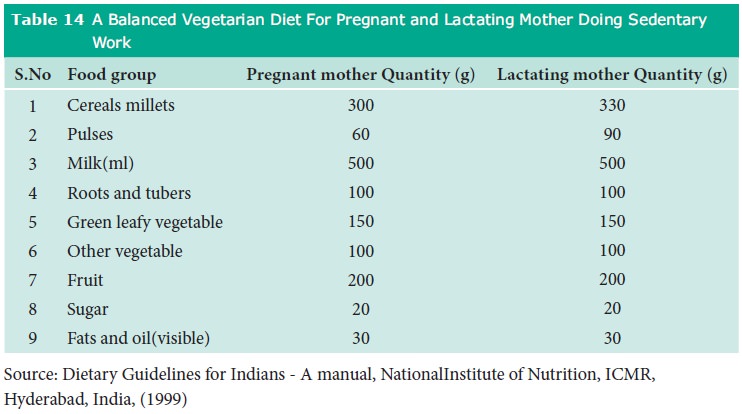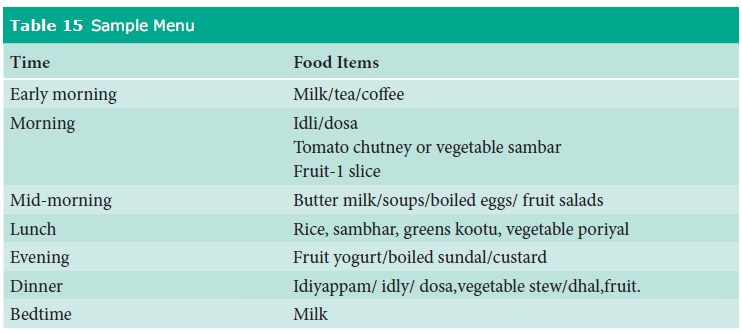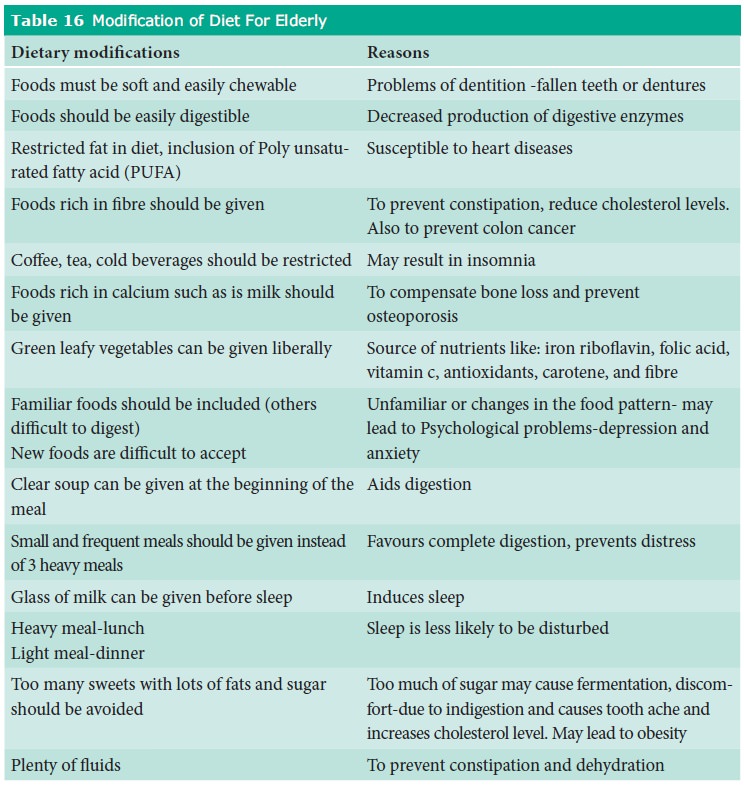Chapter: 11th Home Science : Chapter 6 : Family Meal Management
Nutritional Needs and Challenges During Old Age
NUTRITIONAL NEEDS AND CHALLENGES
DURING OLD AGE
Individuals above the age of 60 years
con-stitute the elderly. Health and well-being of the elderly is given more
importance and has paved way for a specific field of study called “Geriatric Nutrition”.
Aging
Aging is an irreversible biochemical change that occurs throughout an individual’s life cycle and continues until death. In old age, the nutritional status is determined by the state of nutrition of an individual’s cell. Conditions like dietary deficiency, improper digestion and absorption, insuf-ficient distribution of nutrients, accumula-tion of excess waste products lead to poor nourishment of cells.

With increasing age, cell function-ing is
slowed down and their response to hormones and synthesis of enzymes decreases.
These changes are associated with a decrease in the number of function-ing
cells. Since the cells are interdepend-ent, if one cell dies, others of the
same or different organ lose their ability to func-tion resulting in
malfunctioning of the organ. This in turn gradually affects the total body
functioning leading to death.
NUTRITIONAL NEEDS DURING OLD AGE
Energy
The calorie intake should be adjusted to
maintain weight. The energy requirement decreases due to the following reasons:
·
Decreased physical activity
·
Reduction in lean body mass and increase in adipose tissue
·
Decrease in resting metabolic rate by 15-20 percent due to
changes in body composition and physical inactivity
Protein
The protein requirements do not change during
old age. It is the same as adults i.e. 1g/kg of body weight.
Carbohydrate
Since the calorie requirement is reduced, the
carbohydrate content should also be proportionately reduced. Due to impaired
glucose tolerance and gastro-intestinal disturbances like constipation,
emphasis should be on taking complex carbohydrates.
Fat
The fat requirements are also reduced,
corresponding to the energy require-ments. The intake of saturated fats and
cholesterol should be less and unsaturated fat should be used in cooking.
Minerals
Calcium needs increases during old age due to
increasing mobilization of calcium from bones and incidence of osteoporosis.
During old age 1000mg of calcium is rec-ommended per day because of the
follow-ing reasons.
– Limited availability of calcium from foods
– To compensate age related bone loss and to
improve calcium balance
– To
prevent fractures and tooth decay
– To compensate decreased efficiency of
calcium absorption
Aging does not affect iron needs. Hence iron
needs are same as that for adults. Mild anaemia may affect the health of old
people due to inefficient circulation. Therefore iron intake should be adequate
during old age.
Vitamins
Vitamin A requirements remain the same i.e.,
600 μg of retinol. Inadequate expo-sure to sunshine may affect vitamin D
lev-els. The antioxidant vitamins such as vita-min E, carotenoids and vitamin C
have been identified to promote health of the elderly. Vitamin B6 requirements
are also increased due to gastritis which interferes with absorption.
Besides these various nutrients, water should
be consumed in plenty as such or as fluids like buttermilk, fruit juice and
soups. Intake of sufficient fluids reduces the load on kidneys and relieves
from con-stipation by stimulating peristalsis.

Nutrition Related Problems of Elderly
The elderly are at risk of poor nutrition due
to economic pressure, poor dentition, aging tissues and inadequate diet, which
may be compounded with the incidence of chronic disease. The commonly
preva-lent nutrition related problems among the aged include:
·
Osteoporosis
·
Obesity
·
Anaemia
·
Malnutrition
·
Constipation
·
Diabetes Mellitus
·
Cardiovascular disease
Iron deficiency anemia is a serious public health
problem throughout Central America, Like in India, Rice a staple food in
Central America. It is typically pol-ished and rarely iron-fortified.
DIETARY MODIFICATION DURING OLD AGE

Related Topics